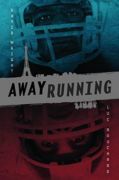
In this novel for teens, Matt and Free meet in Paris where they both play American football on a team in a poverty-stricken suburb where racial tension affects the team.

In this novel for teens, Matt and Free meet in Paris where they both play American football on a team in a poverty-stricken suburb where racial tension affects the team.
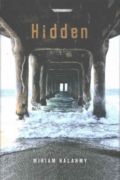
For fourteen-year-old Alix, life on Hayling Island off the coast of England seems insulated from problems such as war, terrorism and refugees. But when Alix and her friend Samir go to the beach and pull a drowning man out of the incoming tide, her world changes.

A retelling of the well-known tale in which a little Indian boy finally outwits the succession of tigers that want to eat him.
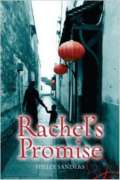
It is late 1903, and Rachel and her family are leaving Russia to escape the murderous riots against Jews. They travel cross country on the Trans-Siberian Railway to the coast and board a ship for Shanghai. China offers refuge, but life for them there is difficult and strange. Rachel is determined to ensure her family’s survival, but does not want to give up her dreams for her future. The opportunity to write for a Jewish newspaper in Shanghai may be the solution she’s been hoping for. The story that began in the novel Rachel’s Secret continues in Rachel’s Promise and Rachel’s Hope.
Join the discussion of Rachel’s Promise as well as other books centered around relocation on our My Take/Your Take page.

“The hour has come to speak of troubled times. It is time we spoke of Skullyville.” Thus begins Rose Goode’s story of her growing up in Indian Territory in pre-statehood Oklahoma. Skullyville, a once-thriving Choctaw community, was destroyed by land-grabbers, culminating in the arson on New Year’s Eve, 1896, of New Hope Academy for Girls. Twenty Choctaw girls died, but Rose escaped. She is blessed by the presence of her grandmother Pokoni and her grandfather Amafo, both respected elders who understand the old ways. Soon after the fire, the white sheriff beats Amafo in front of the town’s people, humiliating him. Instead of asking the Choctaw community to avenge the beating, her grandfather decides to follow the path of forgiveness. And so unwinds this tale of mystery, Indian-style magical realism, and deep wisdom.
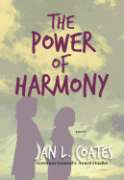
Jennifer’s dream is to become a famous singer–except she’s terrified of singing in public. Since her best friend moved away, Jenn has become the target of the bullies at school. But when a Native girl, Melody, joins the class, the bullies have a new victim. Jenn’s heard what people, including her own grandmother, say about “those people.”
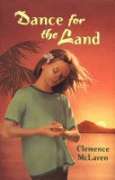
When twelve-year-old Kate, who is half-white, moves to Hawaii with her brother and father, she becomes a victim of racial prejudice but also learns the meaning of her middle name.

Fourteen-year-old Mateo and other Caribbean islanders face discrimination, segregation, and harsh working conditions when American recruiters lure them to the Panamanian rain forest in 1906 to build the great canal.

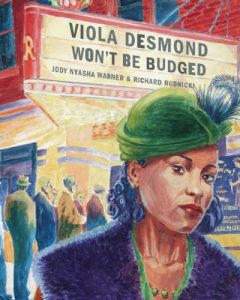 In 1946, Viola Desmond bought a movie ticket at the Roseland Theatre in Nova Scotia. After settling into a main floor seat, an usher came by and told her to move, because her ticket was only good for the balcony. She offered to pay the difference in price but was refused: “You people have to sit in the upstairs section.” Viola refused to move. She was hauled off to jail, but her actions gave strength and inspiration to Canada’s black community. Vibrant illustrations and oral-style prose tell Viola’s story with sympathy and historical accuracy.
In 1946, Viola Desmond bought a movie ticket at the Roseland Theatre in Nova Scotia. After settling into a main floor seat, an usher came by and told her to move, because her ticket was only good for the balcony. She offered to pay the difference in price but was refused: “You people have to sit in the upstairs section.” Viola refused to move. She was hauled off to jail, but her actions gave strength and inspiration to Canada’s black community. Vibrant illustrations and oral-style prose tell Viola’s story with sympathy and historical accuracy.

Two children find goodwill and acceptance in unexpected places even in the hardest of times in a moving tale from a master picturebook creator. In 1930s Liverpool, where streetcars clang on iron tracks, young Bronwen and Dylan live with their widowed Mam. Every day, in the wee hours of morning, Mam leaves the two alone as she gathers other people’s laundry to boil in a big metal copper at home. At night, if she’s not too tired, Mam tells fanciful tales of dragons and ghosties, and on Sunday, she cautions the children about the O’Rileys next door, who go to a church that is not for their kind. But on Christmas Eve, when Mam must go out, Bronwen and Dylan hear a ghostly plonk! plonk! plonk! from the washroom that sends them running straight into the arms of Mrs. O’Riley. Not only do they find that the house next door harbors nothing to fear, but it may hold a blessing for Mam, too. With evocative drawings full of compelling detail, Shirley Hughes tells a timeless, genuine tale of community and human kindness.